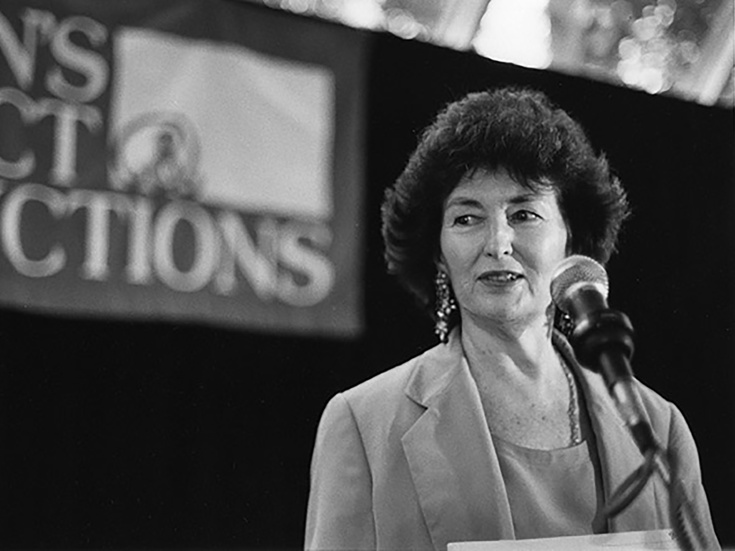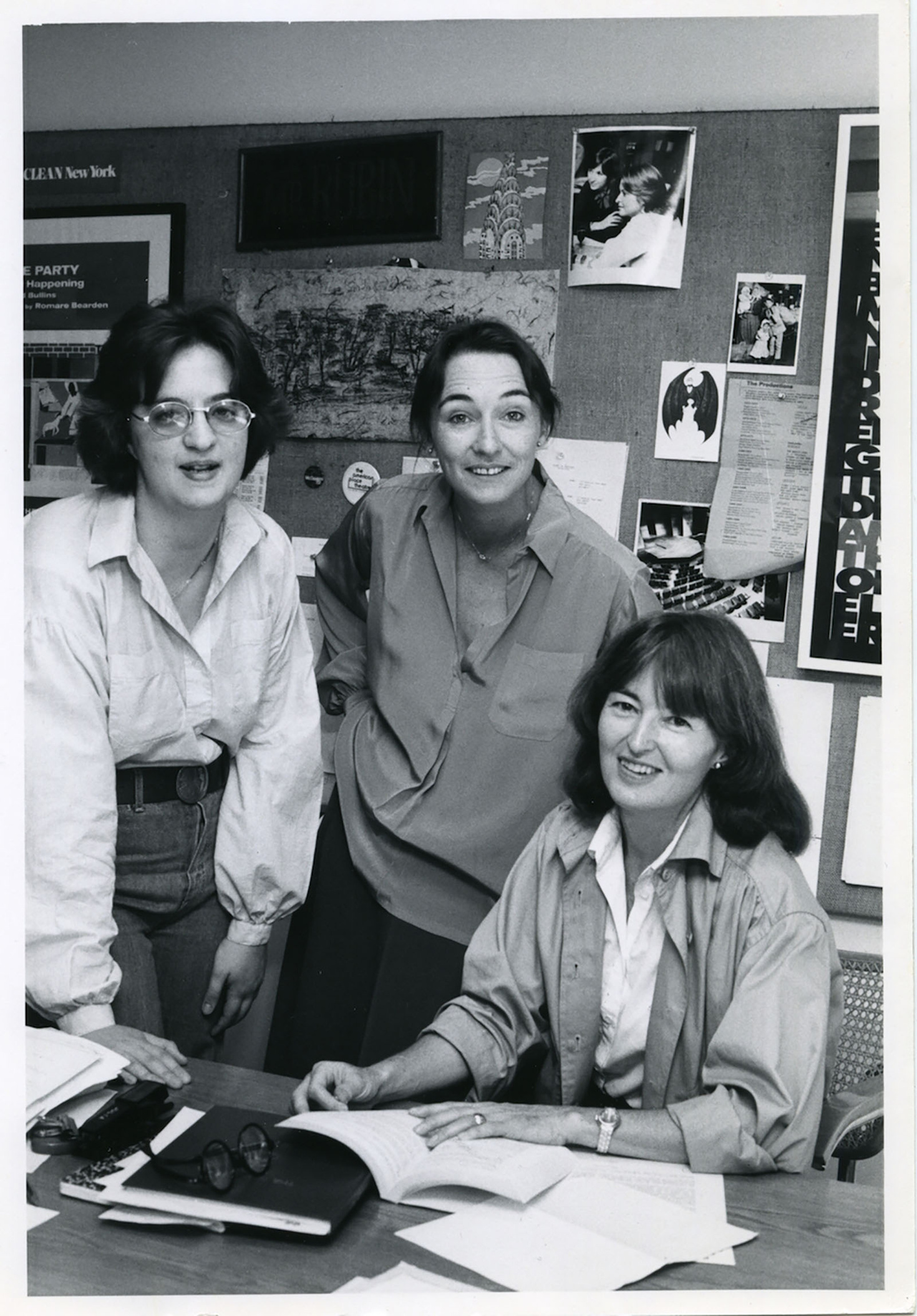Julia Miles, Influential Founder of the Women's Project Theater Off-Broadway, Dies at 90


(Photo: Courtesy of WP Theater)
Julia Miles, founder of off-Broadway’s seminal Women’s Project who championed the cause of female playwrights and theater artists, died on March 18. According to a statement from WP Theater, Miles passed away after a long illness. She was 90.
Miles, who was born in Pelham, Georgia, co-founded the Theatre Current company in Brooklyn Heights during the early 1960s, and, after joining the The American Place Theatre in 1964, identified a key demographic issue in the company’s slate of produced work. “I’ve been here 16 years,” she told The New York Times in 1979, “and realized that we’ve had a very small number of plays by women.”
Miles took up her concerns with the Ford Foundation, received an $80,000 grant and began the Woman’s Project, a seminal organization that would nurture the work of women playwrights and directors, becoming the oldest and largest theater company dedicated to promoting the work of female theater artists at all stages in their careers.
In 1978, the Women’s Project began its work with Choices, a performed anthology of women-penned poetry and prose. “The production explores the choices that women have,” Miles said when that production opened. “Hopefully, there are now more of those choices and women are more definite about what they are.” Wrote Mel Gussow in The New York Times about the Women’s Project’s inaugural production: “Choices serves as a brief introduction to the artistic energy of literary women. Given the variety of versatile people who are engaged in the ‘Women's Project,’ we look forward to the plays, playwrights and directors that should emerge.”
Under the auspices of the American Place Theatre, the Women’s Project then began its first season, a reading of 20 women’s plays, culminating in a festival of three productions: Lavonne Mueller’s Warriors From a Long Childhood, Betsy Shevey’s Signs of Life and Rose Leiman Goldemberg’s Letters Home. “I want to help women all over the country,” Miles said about the Project’s first season. “Women don’t know there are places receptive to their plays: And there are no role models. There are no plays written and directed by women on Broadway,” she said. “Lavonne Mueller is a good example. She has written nine plays, but never heard a line of hers spoken on stage.”

“It's now or never for women,” Miles, who studied acting at Northwestern University and took classes with Lee Strasberg after moving to New York, continued. “The first step is to get the number of women playwrights increased. The next step is to get the quality increased. It will happen.”
Under her direction, the Women’s Project operated as an essential wing of the American Place Theatre for nine years, producing influential work like Emily Mann’s Still Life (1980), Joan Micklin Silver and Julianne Boyd’s A…My Name Is Alice (1983) and Lavonne Mueller’s Breaking the Prairie Wolf Code (1985) and Little Victories (1982), about an imaginative meeting between Susan B. Anthony and Joan of Arc. “The method is similar to that in the first scene of Caryl Churchill’s Top Girls, in which famous women of art and history exchange ideas and items of biography,” wrote Mel Gussow in his review of Little Victories in The New York Times. “One difference is that in Little Victories, we watch the characters actively contest male domination—and win.”
“Neither Joan or Miss Anthony is pictured as an iron maiden,” he continued. “The characters are women first, symbols second.”
In 1987, Miles, citing limited financial resources, performance space and “inhospitable” conditions, split from the American Place Theater. The Women’s Project, eventually renamed WP Theater, then became an independent, nonprofit organization with its own board of directors. Now located at the McGinn/Cazale Theater on the Upper West Side, the Women’s Project and WP Theater has produced more than 600 plays written and directed by women over its 42-year history, nurturing artists like Lauren Yee, Sarah Grancher, Laura Enson and Kate Whoriskey in recent years.
Notably, Miles was also the founder of the League of Professional Theatre Women, which she began in 1981 to emphasize programming and networking among women in all aspects of theater. The purpose of the League, she said, was “to get the commercial Broadway theater to know about nonprofit women playwrights and directors so that we could get them some work.”
“Julia made all of us,” Lisa McNulty, the current artistic director of the WP Theater, said in a letter after Miles’ passing. “The debt all of us women who make theater owe her can never be repaid. We must take her example and do our best to make spaces for artists who aren’t given space, and to shout loudly for those who aren’t given a voice," she wrote.
"If we can do that, we will give back a fraction of what we’ve been given.”
Articles Trending Now
- Death Becomes Her, Maybe Happy Ending, Oh, Mary! and More Earn Nominations for the 2025 Broadway.com Audience Choice Awards
- Maybe Happy Ending Will Be Hitting the Road on a National Tour, Launching Fall 2026
- Ali Louis Bourzgui Reflects on Joining Hadestown, His Upcoming Album and Processing the Experience of Tommy